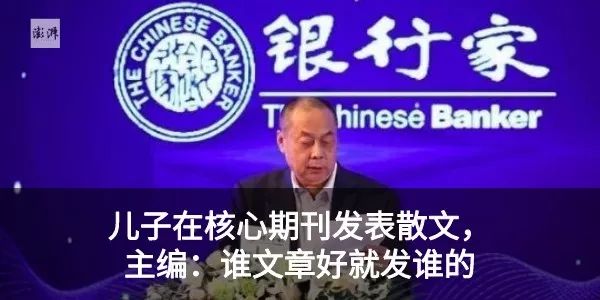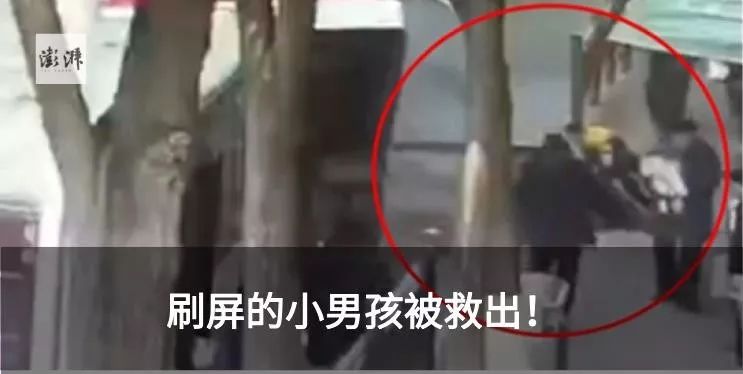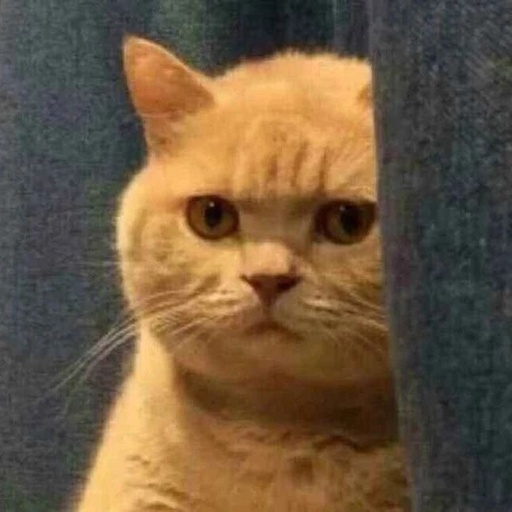Hu Yan Yun (Detective Fiction Writer) “From the early years of the Kangxi era to the ginseng of Su, there were several hundred loads, with each pound priced at only four to fifty taels. Over the years, the output decreased, while the price soared. By the ninth year of the Yongzheng era, the price of ginseng rose to two hundred taels, and by the autumn of the ninth year of the Qianlong era, it reached six hundred taels, and in nineteen years, the price even approached a thousand taels. This shows a continuous rise without decline, and in recent years, it has reached between one thousand six hundred to two thousand taels. “ This description by the Qing dynasty scholar Huang Shucan in “Ginseng Records” provides us with detailed data depicting the skyrocketing prices of ginseng during the Kangxi and Qianlong eras. In the previous issue of “Narrative of Deception”, I also mentioned: From the twelfth year of the Wanli era (1584) to the twelfth year of the Jiaqing era (1807), the price of ginseng increased by 2240 times—regardless of the fundamental reasons for this situation, it is enough to make us feel: How enormous the monetary transactions were in the ginseng market at that time. It is precisely because of the preciousness and scarcity of this special commodity, combined with the complexity of inspection standards and the difficulty of unifying evaluation criteria, that various scams surrounding ginseng emerged and persisted: On one hand, sellers were driven by greed and engaged in deception; On the other hand, buyers schemed and plotted, leading to numerous tragedies and comedies surrounding “ginseng” that are well-documented in ancient records.1. The Sudden Borrower During the Qianlong era, the most famous ginseng shop in Beijing was “Zhang Guanghao”. This shop had a large storefront and, due to its special procurement channels, sold authentic ginseng, which naturally came at a high price. “One day, a young man on horseback came to the shop with a bag of silver. After carefully examining several packages of ginseng at the counter, the young man frowned and said: “My master is very picky. If the ginseng I buy does not meet his expectations, he will surely scold me. I am not good at selecting ginseng, and after looking for a long time, I still do not know which one he would like. Could I leave this one hundred taels of silver as a deposit in your shop, and then you send an experienced staff member to bring a few pounds of top-quality ginseng to my master for him to choose?” The shopkeeper thought this was a good idea, so he accepted the silver and sent an old staff member to accompany the young man, reminding him before leaving: “Be sure to protect the ginseng and do not let it fall into the hands of others easily.” The old staff member and the young man walked together and arrived at a mansion. Upon entering, they saw the master, who was very handsome, draped in a sable coat and wearing a sapphire cap. The old staff member, being well-informed, recognized that the sapphire cap was worn by officials of the third or fourth rank, and immediately felt respectful. The master was very ill, leaning on the bed and gasping for breath. He asked the old staff member: “Are the ginseng you brought all top-quality Liao ginseng?” The old staff member repeatedly affirmed and unwrapped the package, handing it to the young man. The young man took it over, and while inspecting it, he commented on the texture and quality of the ginseng, speaking very knowledgeably. Just then, there was a commotion outside with the sound of carriages and horses. A guest entered the mansion with his head held high. The master became anxious and ordered the young man to go downstairs to inform the guest that he was ill and could not meet him. Then he whispered to the old staff member: “This is a relative who borrows money from me, but he has never returned it. So I have been pretending to be poor. I absolutely cannot let him come upstairs; otherwise, if he sees that I have money to buy ginseng, he will surely borrow money from me again.” At this moment, they heard the guest shouting downstairs: “Your master must be pretending to be sick; there must be a new wife upstairs! Otherwise, why would you stop me from going upstairs? If you have money to marry a concubine, you should have money to lend me. I must go upstairs to take a look today!” The young man desperately tried to block him, and the noise grew louder. The master became even more anxious and urged the old staff member: “Quickly hide the ginseng so that the bad guest does not see it!” The old staff member, unfamiliar with the room’s layout, did not know where to hide the ginseng. In a moment of panic, the master pointed to a locked bamboo box under the bed and said: “There is a locked bamboo box; you can put the ginseng in there.” He then handed him a copper key and said: “Lock the ginseng up. I will go downstairs to deal with the guest first, and after I send him away, I will come back to complete the transaction.” After saying this, he gasped and staggered down the stairs, holding onto the railing. The old staff member hurriedly unlocked the box with the copper key, placed the ginseng inside, and stood guard nearby. They heard the master downstairs exchanging pleasantries with the guest, then arguing. The guest insisted on going upstairs, while the master firmly refused. The guest angrily said: “You are just afraid that I will see you have money! If that is how you treat me, then we will no longer have dealings!” Then they heard the master apologizing and sending the guest away, and the servants followed, leaving the place silent for a long time. The old staff member waited by the bamboo box for a long time, but there was still no sound from downstairs. He got up to take a look and found that the entire building, including the courtyard, was empty except for him, realizing that something was wrong! He opened the box to retrieve the ginseng, but it was already empty. Upon further inspection, he discovered that the box was a false bottom, and the bottom board was the floorboard. He realized this was a group of scammers who had rented this mansion and cleverly remodeled it to set a trap, and the climax of the “play” was when the ginseng was stolen. This story, titled “The Ginseng Scam”, is included in Yuan Mei’s “Zi Bu Yu” and is considered a classic in Qing dynasty records. From this, we can see that ginseng had already become an expensive luxury item during the Qianlong era, and the numerous scams to obtain ginseng made merchants very vigilant. Despite this, even experienced old staff members could still make mistakes… By the end of the Qing dynasty, although the “core trick” of such scams remained unchanged, the forms had been “upgraded”, with classic cases recorded in “Night Rain Autumn Lantern Record” and “Guest Window Idle Talk” regarding the “Suzhou Ginseng Fraud Case”.
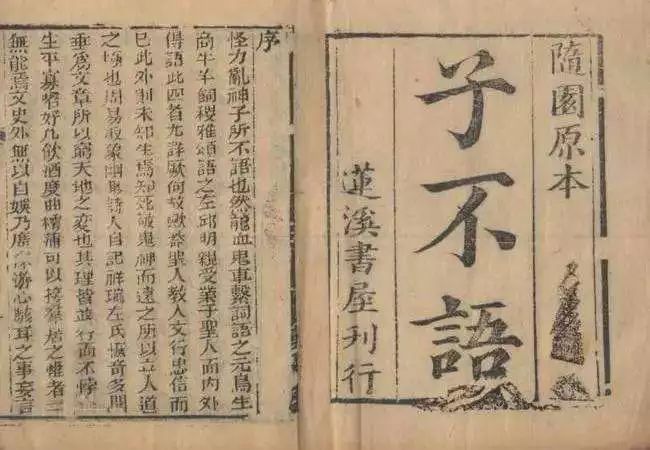
《Zi Bu Yu》2. The Substitute Prefect is a Fraudster “Outside the Changmen Gate of Suzhou, on the main road where goods are exchanged, the ginseng trade is particularly prosperous.” Examining the history of ginseng in China, its widespread recognition as a rare treasure is closely related to the warming culture that emerged in Jiangnan during the Ming dynasty. Therefore, Jiangnan has always been a key area for ginseng consumption. Among all provinces in the country, Zhejiang has consistently had the highest sales of ginseng, especially in Ningbo, Shaoxing, Haining, and Jiaxing. Additionally, the ginseng trade in the Three Chus, Eight Min, Two Guangs, and Jiangyou regions is also very active—however, Suzhou holds a very special position in the national ginseng trade because it is the gathering place for all ginseng, “from Mount Tai to Qiu Diao, all are sold here!” Thus, the ginseng trade flourished, and high-quality ginseng was abundant. One day, a well-known mansion in Suzhou, which had been vacant, was suddenly rented by a man dressed in the attire of a fourth-rank official, “with a seal of the substitute prefect Chen hanging at the door.” Along with him moved in dozens of servants, including the steward, accountant, chef, and attendants, each time entering and exiting in a grand four-person carriage, creating a great spectacle. The current officials of Suzhou’s prefecture and county all came to pay their respects. Occasionally, this family would host banquets, and the nearby ginseng merchants were all amazed to see the crowds of guests. One day, two elegantly dressed servants from this household visited various ginseng shops to inquire about prices. A cautious shop owner tried to probe into the identity of their master, and the servant arrogantly replied: “Our master is the eldest son of Chen Tianguan, who has been appointed as a substitute governor in Jiangsu. Our family is immensely wealthy, and everyone in the family loves ginseng, using it as a substitute for tea.” “The ginseng we brought is almost used up, and our master has ordered us to carefully select which shop sells ginseng of good quality and fair price for long-term purchases.” Upon hearing this, all the shop owners rushed to flatter them, even privately promising hefty kickbacks in hopes that the two servants would buy ginseng from their shops. They selected and finally chose the products from the most famous ginseng shop in Suzhou, first buying a tael to take home for tasting, and invited the shop’s staff to return with them to hear their master’s opinion on the ginseng. When the staff returned to the shop, he praised the luxurious decoration of the mansion and learned that the master’s wife needed to consume three qian of ginseng daily, which would amount to “tens of thousands of taels in transactions each year,” making the shop owner very happy. At this moment, the fourth-rank substitute official, dressed in splendid attire, arrived and said to the shop owner: “Your goods are genuine and fairly priced. My wife often eats good ginseng; please prepare forty taels of top-quality ginseng to be delivered to our home.” After he left, the shop owner hurriedly selected forty taels of top-quality ginseng and had two servants take it to the Chen residence to exchange for silver. When the two arrived at the Chen residence, they were invited to the back building. Upon entering, they were dazzled by the sight: “The room was adorned with high-hanging curtains, embroidered quilts, and modern clocks, all splendidly arranged.” In the inner room, there were dozens of boxes filled with silver, and the master ordered the servants to open the fifth row, box number twenty, which was on the ground. Just as they were about to open the silver seal to weigh it, they suddenly heard a commotion outside. The master hurriedly told the two ginseng shop servants to go check what was happening, then put the ginseng and silver into the box, locked it, and handed them the key before rushing outside. For a moment, the courtyard was filled with shouting, mocking, and arguing sounds, followed by a long silence. As night fell, no one returned to the building. The two servants were at a loss, and suddenly they heard the shop owner’s voice calling from outside. When they went out, the owner, holding a lantern, anxiously said: “I waited for you for a long time and came to check, only to find that it was completely empty here!” The two servants replied: “Don’t worry, the ginseng and silver are in the box.” When they opened the box, it was empty. Upon closer inspection, they found that the bottom of the box was connected to the floor, and it had been stolen clean. Looking at the exquisite decorations, “except for the curtains, the quilts were made of high-quality paper with printed flowers; the clocks were merely shells, hollow inside; and the boxes were all made of paper, hiding only a few packages of stones inside,” they realized that everything was just cheap imitations! They suddenly realized that the commotion outside was merely a distraction while the items were being moved. The forty taels of top-quality ginseng, worth nearly one hundred thousand taels of silver at the time, caused the shop owner to lament and rush to the authorities to report the case, complaining that if it weren’t for the close ties with the officials, he would not have been deceived. The prefect smiled wryly and said that the scammers had forged a letter from a high official in the capital, and he could not help but go to receive and thank them, unwittingly becoming the scammers’ “accomplice.” There is nothing new under the sun. Compared to the scams recorded in “Zi Bu Yu”, the “Suzhou Ginseng Fraud Case” is similar in its deceptive methods but more elaborate in its “packaging” and even used the official banner as a disguise, making it even more deceptive.
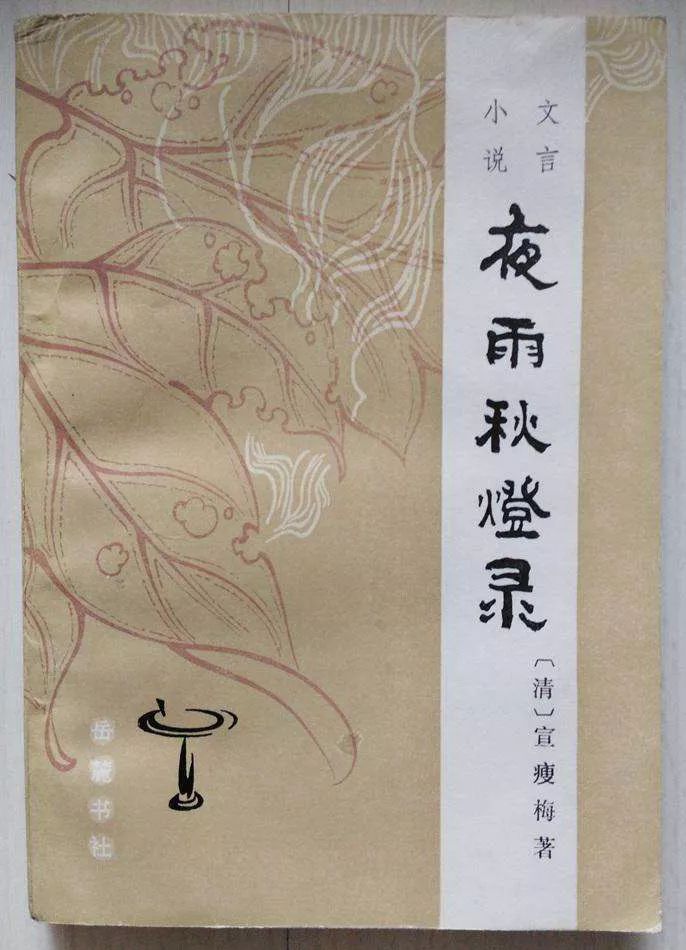
《Night Rain Autumn Lantern Record》3. Even Experts Cannot Identify In addition to criminals deceiving merchants and stealing ginseng, unscrupulous merchants also engaged in fraud by selling “counterfeit ginseng” to consumers, which was also common. At that time, there were mainly four methods used to deceive consumers when selling ginseng. One was to insert various heavy objects into the ginseng to increase its weight, with the most common “inserts” being lead strips, iron beads, willow wood, and beef tendons. Later, there were also wax and sugar brine, similar to today’s “water-injected pork”. The second method was to pass off inferior products as good ones. The ancients divided ginseng into twenty grades, with the top-quality ginseng having ten grades: dry, fresh, short, strong, smooth, round, patterned, clumsy, mature, and glutinous. Inferior ginseng was also divided into ten grades: damp, blurred, long, thin, rough, shriveled, martial, sharp, raw, and glutinous. If inferior ginseng was processed, like squid soaked in formaldehyde, to make it “shine”, it could be sold at high prices as top-quality ginseng in the market. The third method was simply to produce and sell fake products. In fact, many plants resemble ginseng, such as Fang Feng (Siler), Sha Shen (Glehnia), and Jie Geng (Platycodon). Friends who have seen Jackie Chan’s movie “Drunken Master II” will surely remember that the roots of Jin Zhi Yu Ye were used as ginseng, which could also deceive people. In the Jiangsu and Zhejiang regions, there is also a type of local ginseng whose leaves resemble Jie Geng, and its roots are softer than Jie Geng, with a sweet and fragrant taste, making it very deceptive as a substitute for ginseng. Among the materials used to make “fake ginseng”, the most common is the root of wild radish. The specific method is to boil mountain gardenia, licorice, and wild radish root together, which can indeed be mistaken for the real thing. The only way to identify it is that when boiled, it has no fragrance, and the residue does not break down but only swells. The Qing dynasty physician Tang Bingjun recorded in “Ginseng Reference” that he had a friend who came from Sichuan and brought him several pieces of “ginseng”. At first glance, they looked red and shiny, just like real mature ginseng, but upon closer inspection, he discovered they were fake, and he could only sigh, truly “even experts cannot identify”. The fourth method, according to trade jargon, is called “gold inlaid jade”, which means a mix of real and fake, “using rough to connect with mature, or using fake to inlay real, or mixing vertically and horizontally to form branches, or layering to create a seamless appearance, dazzling the eye and difficult to identify.” During the Republic of China period, the main material for “fake ginseng” was replaced with coriander roots. The famous folklorist Wang Yongbin wrote in his book “Yandu Shuo Gu” that this kind of trick was particularly common in old Beijing. The counterfeiters “pulled out stout ginseng roots, washed them clean, dried them, and then sewed coriander roots into exquisite brocade boxes,” and then took them out to sell, claiming to elderly women or country folks visiting Beijing that this ginseng was a family heirloom, and because they had encountered difficulties while visiting relatives in the capital, they decided to sell this family treasure… Those who had never seen the world, as long as they were greedy for a bargain, would fall for it.
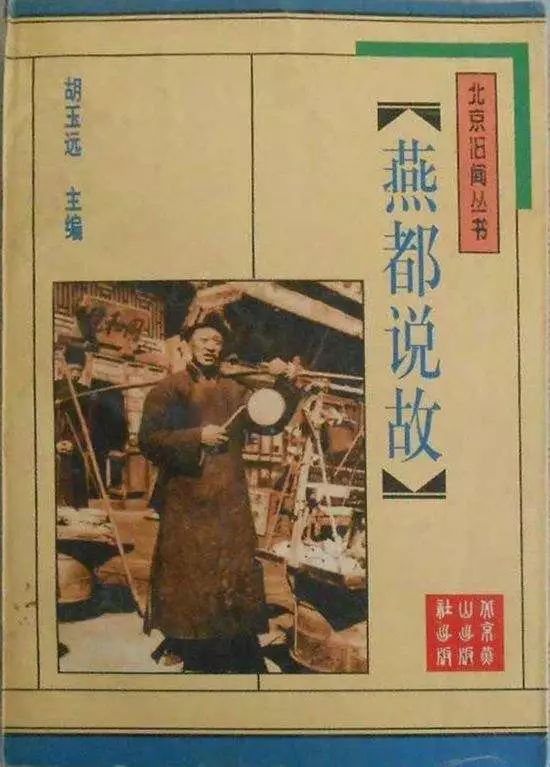
《Yandu Shuo Gu》 In fact, looking back, these scammers’ techniques have not changed over the centuries. What is lamentable is that despite the passage of time, those who fall victim to these scams have not ceased. Ironically, many of the “bait” that have caused financial losses are, in essence, just ordinary medicines, stripped of the layers of rarity and preciousness that the world speaks of. In terms of the quantity of healing, they probably do not compare to the plain and unadorned Da Huang (Rhubarb)—from this perspective, perhaps our pursuit of various mysteries and luxuries is itself a voluntary “pitfall”.
This issue was edited by Zhou Yuhua
Recommended Reading
